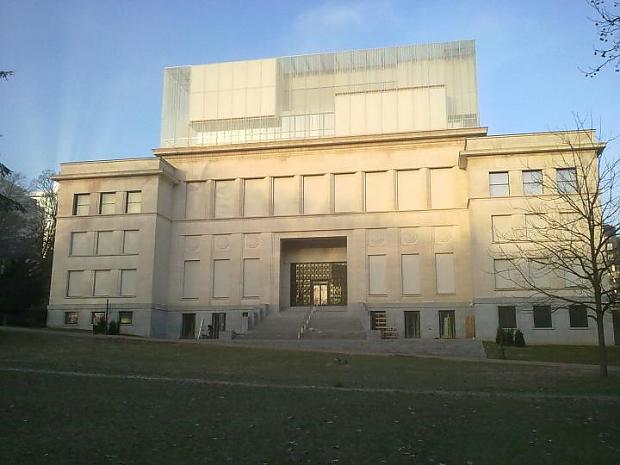Golden cages and slave shackles in the European Parliament
Golden cages and slave shackles in the European Parliament

A few years ago I used to regularly write about the ridiculously high salaries paid to EU officials. These salaries remain extremely high, and for that reason few of these employees ever leave. They do find this frustrating, however, because they often don't come into consideration when it comes to internal promotions, with more senior posts going to political appointees. Moreover, not all positions are all that lucrative. Recently there was discontent among canteen workers. Now it's the turn of attendants at the House of European History to sound the alarm. They don't work directly for the European Parliament, but respectively for a catering firm and a 'payroller', a company which exists purely to provide labour-related services for other firms, and which don't always look too closely at the working conditions of people they hire. Amongst the museum attendants, there's even talk of modern slave labour. Rich or poor, a great many employees are experiencing frustration, and this must be ended.
The management of the EP is continually under pressure to cut staff costs. While millions are spent on so-called information and publicity, and (not forgetting) buildings, spending on personnel must be reduced by as much as possible. That's coming back to haunt them now in the case of the museum attendants: they're certainly not high earners, especially in terms of what's understood by that in Brussels. They don't come under the statute for officials but work for what's generally known as a temping agency, Manpower, so Belgium labour law should apply. But even that isn't the case. Otherwise, how could it be that they regularly work ten hour days and six or seven hour weeks? During those working days they have to either stand or walk, as they're not allowed to sit down. Lunchtime has been shortened to thirty minutes, and permission is needed to visit the toilets, permission which is not always given.
Working conditions unworthy of human beings. Slave labour. The chief of the personnel has now assured me that he will launch an investigation into this. That's a start, but whoever employs them, museum attendants deserve decent working conditions. So I won't rest until their situation is improved.
But for the highest earners, the 'ordinary' officials of the Parliament, it's also not all moonlight and roses. Not only do they live in a golden cage, because they could never earn the same salaries elsewhere, but in addition, their development within the Parliament is blocked. That's because the highest positions are all political appointments. On 25th September discussions were held in camera on this as a result of the appointment of Martin Selmayr as the new Secretary General of the Commission. According to the European Ombudsman this was a possible case of maladministration, and I could not agree more. The Commission, however, doesn't want to know, while in the EP too political appointments continue to be commonplace. The matter will now come up again in the Budgetary Control Committee and we're going to go in hard against this Brussels nepotism.
The appointment of top officials should be transparent and honest, an opinion which a great majority of MEPs share, so it's high time for a clear statement to be made. The golden cages will remain in place as long as EU officials earn too much, but if these same officials also have to contend with a blocked internal career path, then we'll soon have nothing but thoroughly frustrated staff. And nobody wants to see that.
- See also:
- Dennis de Jong
